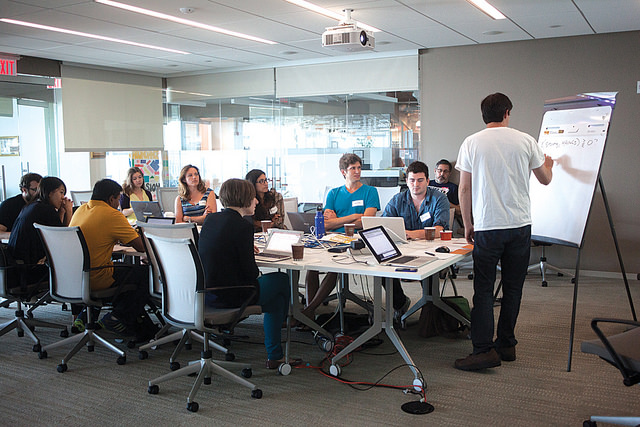Hackathons have proven to be a great way to use tech for good. Often described as a great equalizer, technology can be leveraged to bring voice to people that society often ignores. Social activists are turning to hackathons to help spread their message and develop solutions, instead of waiting on the government to initiate change.
One such activist is Hera Hussain, founder of the advocacy group Chayn. Chayn is a volunteer-led, open source project that leverages technology to empower women against violence and oppression so they can live happier and healthier lives. They offer tools to help abused women build a domestic violence case without a lawyer, and advise about how a person can be tracked on and offline, among other things. This organization is all about individuals empowered to make change. One of their main ways to get the community involved is hackathons.
Hussain says that hackathons are events that bring together important parts of society that isolate themselves when it comes to women’s issues. “You either have events that just focus on women…” Hussain says, “or you have events that are completely dominated by men and are either forgetting that women exist or have separate issues. There’s very little middle ground that uses an integrated women lens as part of a broader focus of solving societal challenges.”
Bringing together these problem solvers is crucial to making real progress in the future. Hussain states that Chayn is about solving problems with, and not for, women in different communities. This organization is dedicated to allowing women to choose what they want to do with their lives while being treated equally during the process. Hussain says, “We always come back to independence and happiness as our two biggest goals..”
Article via Good Magazine, 22 September 2015
Photo: Hacking for Women’s Empowerment via Bread For The World [Creative Commons Attribution-NonCommercial-NoDerivs]





